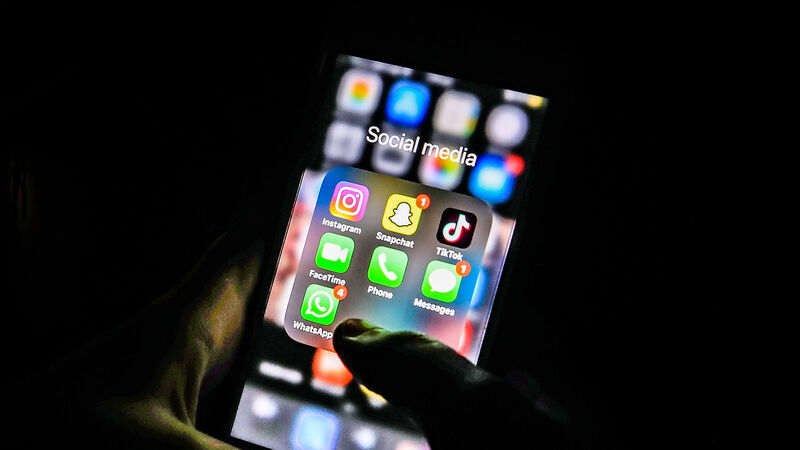How to keep your kids safe on social media

A young girl looks at social media apps on her phone, including TikTok. Picture: Peter Byrne/PA Wire
Amid reports of a distressing video circulating on TikTok, parents are being urged to take measures to ensure their children use social media safely and responsibly.
It is understood a video of a suicide is circulating on platforms including TikTok, an app popular with younger social media users.








